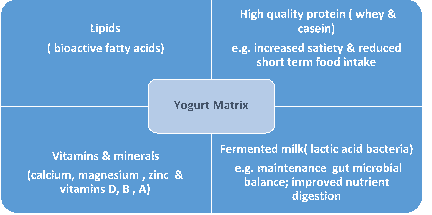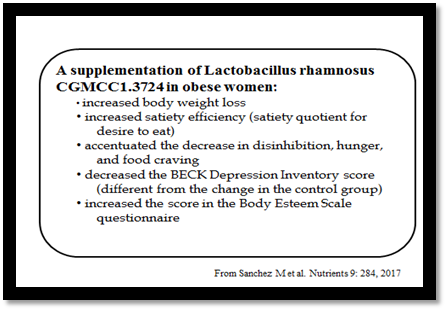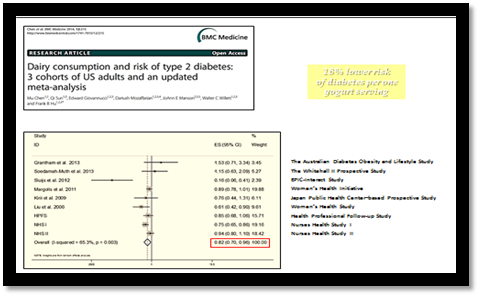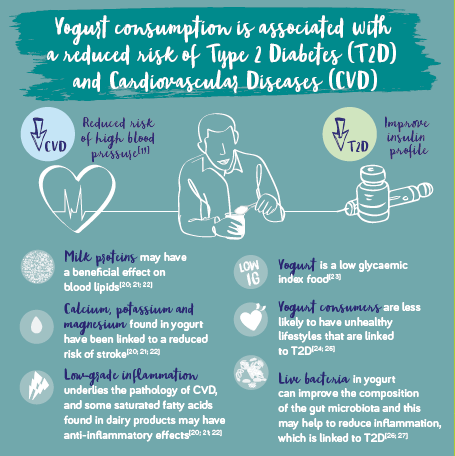Recent clinical and epidemiological research suggests yogurt has properties beyond the influence of individual nutrients which can contribute to the prevention of diet related non-communicable diseases.
Summary written by Azmina Govindji RD MBDA Registered Dietitian & Nutritionist
The 13th European Nutrition Conference of the Federation of European Nutrition Societies (FENS) 2019, entitled Malnutrition in an Obese World: European Perspectives, took place in the Convention Centre, Dublin, Ireland across 4 days from 15 – 18th October 2019. The conference, held every four years, brings together nutrition and health professionals from across Europe.
Professor Angelo Tremblay, from the Department of Kinesiology, Laval University, Quebec City, Canada, an international specialist in the environmental determinants of obesity and the holder of the Canada Research Chair in Environment and Energy Balance, delivered a thought-provoking review on yogurt consumption and health. In it he explored epidemiological and clinical evidence for a variety of mechanisms in which yogurt consumption can be considered in the prevention of diet-related non-communicable diseases (NCDs) and associated risk factors including obesity, metabolic syndrome and type 2 diabetes (T2D).
Yogurt as a complex food matrix
Professor Tremblay began by considering the role of yogurt as a flexible food matrix of components which interact synergistically to favourably influence digestion and metabolic processes involved in NCDs.

He illustrated one aspect of this complex matrix by presenting clinical research showing the role of protein composition and content in yogurt and appetite control. Both protein-enriched and whey-enriched yogurt when eaten as a snack have been shown to significantly increase satiety and suppress short term energy intake at subsequent meals suggesting potential benefits for management and prevention of obesity.
Yogurt as a fermented food
Professor Tremblay went on to outline the importance of probiotics and gut microbiota in the development of obesity, metabolic syndrome and T2D describing how bacterial cultures in yogurt are key to understanding its role in health.
He reminded the audience that the European Food Safety Authority (EFSA) supports the health claim that yogurt made from cultures (Streptococcus thermophilus and Lactobacillus. Bulgaricus) has demonstrated benefits for lactose digestion and may be considered a probiotic for individuals with lactose intolerance.
Professor Tremblay provided data supporting the hypothesis that the gut-brain axis may impact appetite control and related behaviours in obesity management and outlined studies on the benefits of probiotic supplements in weight management suggesting that that yogurt is an ideal vehicle for probiotics in food. In an innovative clinical trial, the probiotic Lactobacillus gasseri (LG2055), delivered in fermented milk (200g/day for 12 weeks), led to significant reductions in both visceral and subcutaneous abdominal fat and as well as body weight in high risk individuals.
He also reported on the use of a probiotic supplement (Lactobacillus rhamnosus) in a 24-week weight reducing trial in obese women. In this trial the active supplementation group improved weight loss, satiety measures and behaviours around eating (including hunger and food cravings) as well as psychosocial traits (including depression and body esteem) when compared to placebo.

Yogurt in high risk individuals
Professor Tremblay next presented findings from meta-analyses of large prospective studies which show a positive impact of yogurt (but not other dairy food) intake on reducing risk of T2D when carefully controlled for lifestyle confounders such as physical activity, smoking and diet. Taken together the data showed an 18% lower risk of T2D with one serving (200g) yogurt per day compared to no intake.

He went on to discuss fascinating cross-sectional data from the Québec Family Study which illustrates the potential metabolic health benefits of yogurt.7 Data from this cohort suggest yogurt consumption may protect against insulin resistance specifically in young adults at risk from family history of obesity, and that this relationship appears to be independent of body composition and lifestyle factors. He also reported on clinical data suggesting that fermentation with bacterial strains and their effect on gut microbiota appears leads to a greater beneficial effect of yogurt on insulin resistance, intra hepatic fat, inflammation and oxidative stress in obese participants than non-fermented dairy products such as milk.

Yogurt as a marker of a healthy lifestyle
Finally, Professor Tremblay explored the role of yogurt as a signature marker of a healthy diet and lifestyle. He presented survey data from a large Italian population showing that yogurt consumers tend to demonstrate healthier behaviours compared with non-consumers. They are more physically active, smoke less and have a greater knowledge of nutrition compared with non-consumers.
Data from the Quebec Family Study was also used to compare yogurt consumers and non-consumers. Yogurt consumption was associated with higher nutritional intakes, healthier dietary habits, improved body composition and metabolic health benefits as well as with non-nutritional lifestyle factors including greater levels of physical activity and lower smoking rates. However, the health benefits remained after adjustment for physical activity and nutrient density using the Nutrient Rich Foods (NRF) index suggesting they cannot be entirely explained by a global effect of diet quality but may be related to the consumption of yogurt itself.
Conclusion
This review provided a compelling argument that yogurt consumption may contribute to lower risk of NCDs via a variety of mechanism going beyond the role of individual nutrients. These include the synergistic action of components within the complex yogurt food matrix and the role of bacterial cultures on metabolic health, energy balance, body weight and glycaemia as well as the relationship with healthier behaviours and lifestyle factors.
Beyond nutrient density, yogurt:
- offers a flexible food matrix
- contains bacterial cultures
- is relevant for probiotic supplementation
- promotes health benefits in vulnerable individuals
- appears as a signature of a healthy lifestyle
Application in Dietetic Practice
This presentation has provided exciting new perspectives on the benefits of yogurt for conditions affecting many of the clients seen in dietetic practice. This includes those requesting weight management guidance as well as advice on adverse cardio-metabolic profiles for the prevention of NCDs such as Type 2 diabetes.
Points to consider
- It is worth considering that the benefits of yogurt for appetite control, body composition and glycaemic control appear to go beyond individual nutrient content to specific interactive properties of the yogurt food matrix including the bacterial constituents involved in fermentation. Benefits occur with intakes at or above one serving (200g) of yogurt per day which can be incorporated as one or more portions of recommend daily “dairy and alternatives” in the Eatwell guide.

- More research may be needed to establish the precise mechanisms underlying the benefits of yogurt consumption and to establish if additional yogurt-specific recommendations for particular conditions may be useful for us to make. Meanwhile however, it is important to remember that yogurt contains a strong and varied package of nutrients which can usefully be consumed on a regular basis for good nutritional intake as well as multiple potential benefits going beyond cardio-metabolic to maintenance of bone and muscle health.

- Dietitians can provide tailored information on yogurt consumption to their patients and clients whilst being confident in the practical benefits it offers over many existing functional foods or so-called superfoods. These advantages include:
- Popularity, palatability and easy purchasing accessibility to consumers
- Affordability as a great value for money source of nutrients
- Versatility and convenience of use
- Dose effectiveness with easily manageable and realistic portion sizes
- Improved tolerance over milk for clients on low lactose diets
“Yogurt consumption may be considered a signature of a healthy diet through its nutritional content, impact on metabolic health including the control of energy balance, body weight and glycaemia and its relationships with healthier behaviors and lifestyle factors – Panahi S et al. Eur J Clin Nutr 2017.”
References
- Lluch A et al. Food Quality and Preference 21: 402-409, 2010
- Doyon, C. et al. APNM 40: 980-989, 2015
- EFSA Panel on Dietetic Products, Nutrition and allergies. EFSA J 8: 1763, 2010
- Kadooka Y et al. EJCN 64: 636-43, 2010
- Sanchez M et al. Nutrients 9: E284, 2017
- Chen M et al. BMC Medicine 12: 215, 2014
- Panahi et al. EJCN 73:541-548, 2019
- Chen Y et al. AJCN 109: 1611-9, 2019
- D’Addezio et al. Med J Nutrition Metab 8: 119-129, 2015
- Panahi S et al. EJN 71: 573-579, 2017
- Eatwell Guide: Public Health England 2016
- Panahi S, Fernandez MA, Marette A, Tremblay A. Eur J Clin Nutr. 71(5) 2017.



